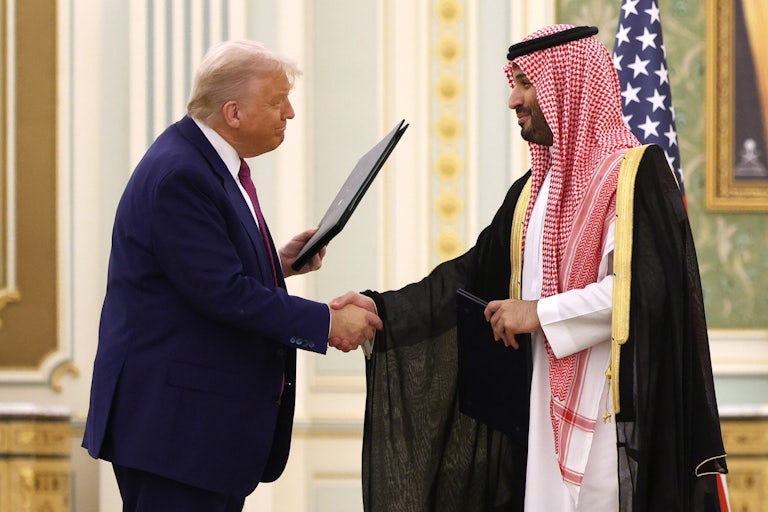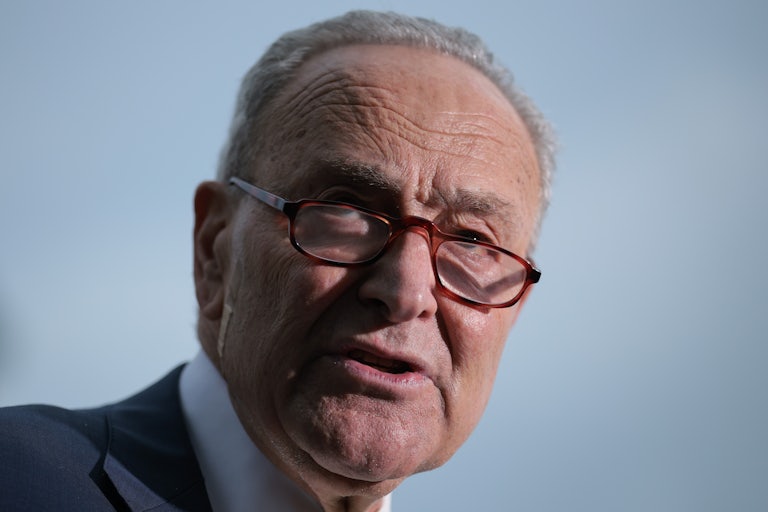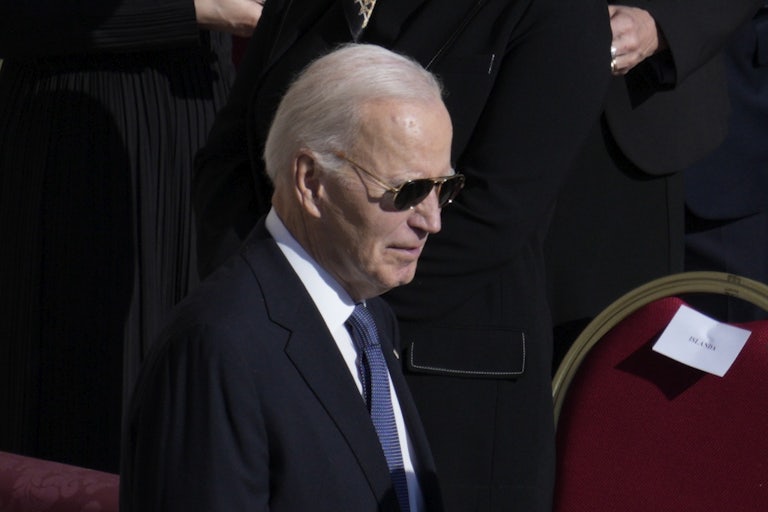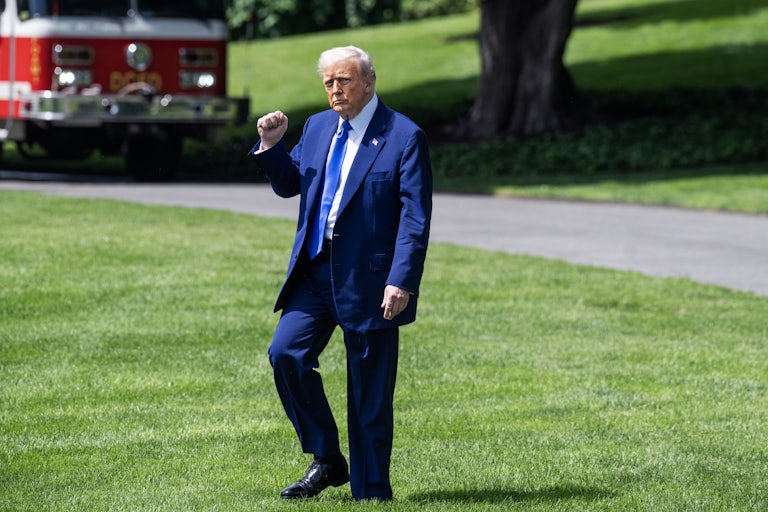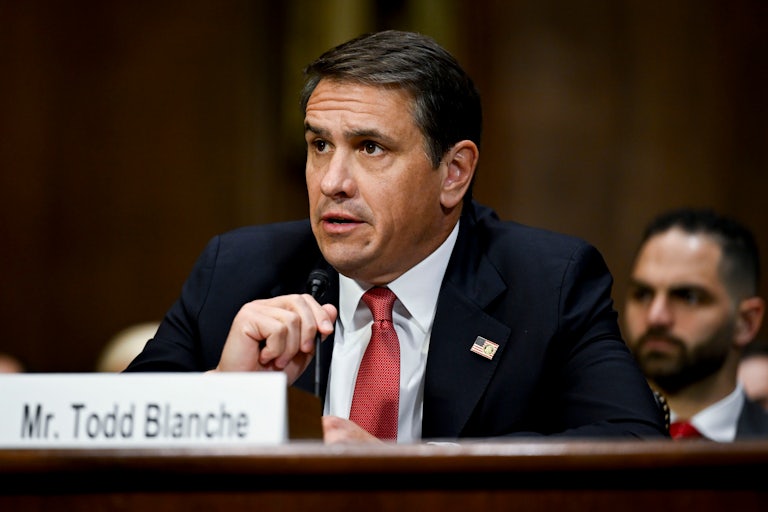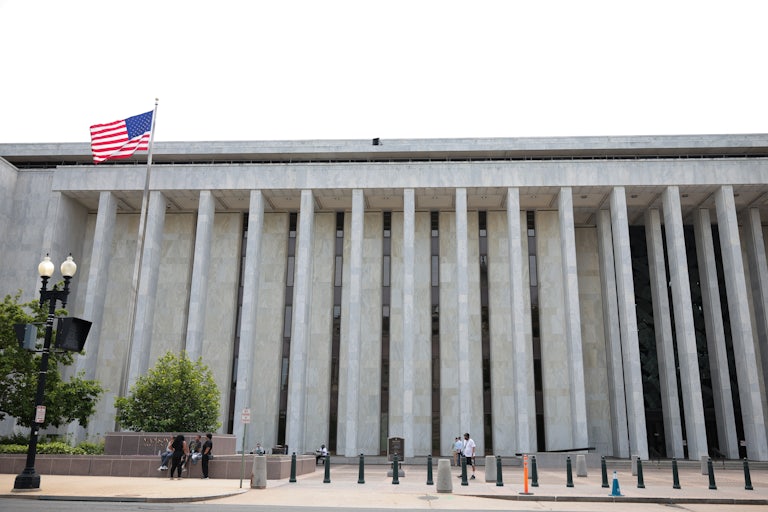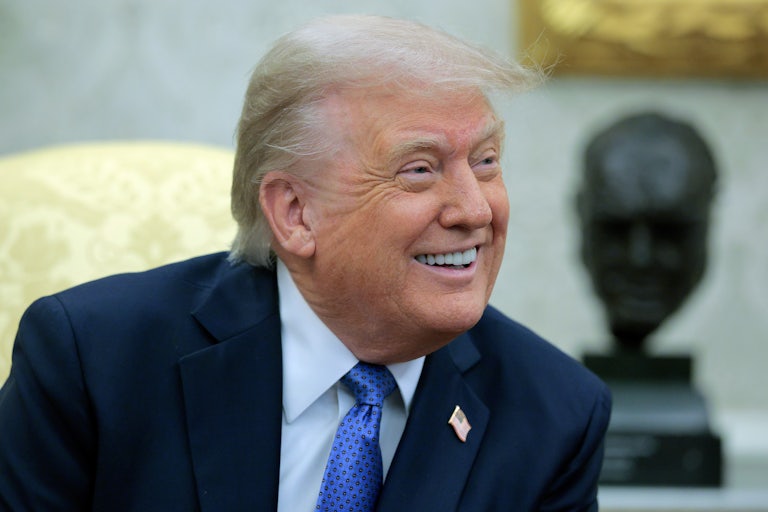Trump’s Tariffs Are Good for One Thing: Saving Us From Podcast Bros
Donald Trump’s tariffs are having an unintended (but welcome) side effect.
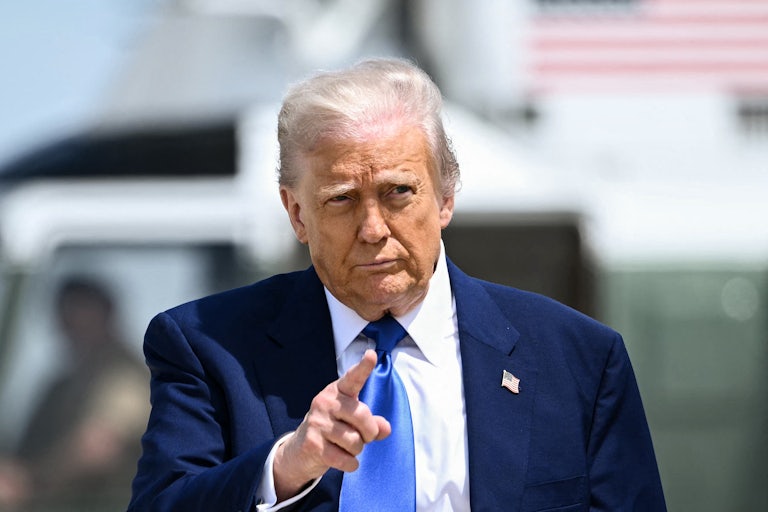
Donald Trump’s appearances on several podcasts last summer helped him cinch important voting blocs, such as young male voters—but now the president’s economic plan could damage the audio industry.
All items on the consumer price index rose by at least 0.2 percent in April, according to data released Tuesday by the U.S. Bureau of Labor Statistics.
But some industries were hit even harder. Prices for audio equipment, for instance, rose by 8.8 percent, according to market columnist Sam Ro, who has a Substack called TKer.
“Podcasters are getting crushed,” Ro posted on X.
The president’s tariff rollout has been remarkably bad for business, sending investors on a roller-coaster ride since he first announced the plan in early April. As a result, working- and middle-class Americans have lost thousands of dollars in retirement savings, businesses have stalled on critical long-term decisions, and America has lost some of its most important international allies.
It was only the reversal of Trump’s corrosive tariffs on China—which on Monday dropped to 30 percent from 145 percent for the next 90 days—that rallied the markets.
The news also made the dollar flourish, surging 1.1 percent against several other currencies in the wake of the tariff pause to hit a one-month high. The dollar was still down 2.3 percent, however, since Trump first announced his sweeping plan.
“Now the conditions are falling into place for a deeper adjustment and a bigger recovery of the dollar to catch up with U.S. equities and bond yields,” Kenneth Broux, senior strategist at Societe Generale in London, told Reuters.
Still, market columnists have been quick to note that the 90-day truce between the two countries is “not a deal.” The Trump administration has promised sector-specific tariffs—something that could fundamentally undermine the fragile $600 billion trade agreement set in place over the weekend.
Trump has argued that tariffs are the best solution to closing the country’s trade deficits, which he has incorrectly likened to taxpayer-backed “subsidies” for other nations. He has claimed that without tariffs, the U.S. is transferring wealth to other countries while receiving nothing in exchange. He has also pitched that hiking tariffs on other nations would bring jobs and manufacturing opportunities back to American shores, but economists don’t agree with either point.
Instead, droves of financial and economic experts have insisted that tariffs on other nations will only serve to harm America and its markets, making products more expensive stateside and making American consumers less likely to spend their money (something that Trump doesn’t seem to have any problem with, actually). The Harvard Kennedy Business School even floated in April that America’s trade deficit basically doesn’t matter, writing that “Americans earn more from, or earn just about as much from, their total investments abroad as foreigners earn in the United States.”
